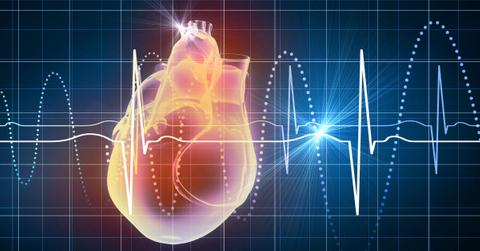Growing Alarm: Young Adults Across United States Battling Surge in Heart Attacks

In the wake of the Covid-19 pandemic, studies have found an alarming increased risk in heart attacks and heart attack deaths among those between the ages of 25-44.
The Covid-19 pandemic has brought about a concerning trend in the rise of heart attacks, particularly among younger adults aged 25-44, according to sources.
Prior to 2019, global statistics showed a decline in heart disease-related fatalities, but the onset of the pandemic has reversed this trend, according to the World Health Organization.
A study conducted in September 2022 at Cedars-Sinai Medical Center highlighted a notable increase in heart attacks and related deaths within the younger age bracket.
The study revealed a significant 29.9% increase in heart attack fatalities among individuals aged 25-44 during the initial two years of the pandemic, compared to a 19.6% increase among those aged 45-64 and a 13.7% rise in those over 65.
The National Institute of Health has also established a connection between Covid-19 symptoms and the heightened risk of heart attacks and strokes. Research findings suggest that the virus may lead to increased inflammation in artery wall tissue, escalating the risk.
Furthermore, a study published in February 2023 by the Journal of Clinical Medicine uncovered the potential long-term cardiovascular consequences of even mild cases of Covid-19.
Dr. Yee Hui Yeo, principal author of the Cedars-Sinai study, highlighted a key factor contributing to the spike in heart attacks among younger individuals: a lack of awareness regarding the correlation between their symptoms and heart health.
Symptoms such as shortness of breath, lightheadedness and heart palpitations are often misconstrued as lingering effects of Covid-19 or mild cases of the virus.
Dr. Yeo emphasized the importance of recognizing warning signs such as chest pain, discomfort spreading to the arm, back, or jaw, cold sweats, and fatigue, among others. Additionally, she noted that women may experience different symptoms, such as brief pain in the back, neck or arm.
It is crucial for individuals of all ages to be vigilant about heart attack risk factors, including high blood pressure, high cholesterol, obesity, diabetes and family history of these conditions, as well as lifestyle factors like alcohol consumption, tobacco and marijuana use, and drug intake, including cocaine.
Never miss a story — sign up for the Front Page Detectives newsletter. Be on the scene the moment news breaks.
Cardiologist Antreas Hindoyan from Keck Medicine of USC underscores the significance of comprehensive heart health assessments, recommending routine lab work to monitor kidney and thyroid function, cholesterol levels and blood sugar levels, especially for individuals who have had Covid-19.
Additional tests such as stress tests, EKGs and MRIs can provide valuable insights into heart health status. However, Hindoyan emphasizes the ongoing experimental nature of research, tests, and treatments in this field, indicating that there is still much to be understood.
Become a Front Page Detective
Sign up to receive breaking
Front Page Detectives
news and exclusive investigations.
